The Vote That Meant Nothing
The Vote That Meant Nothing

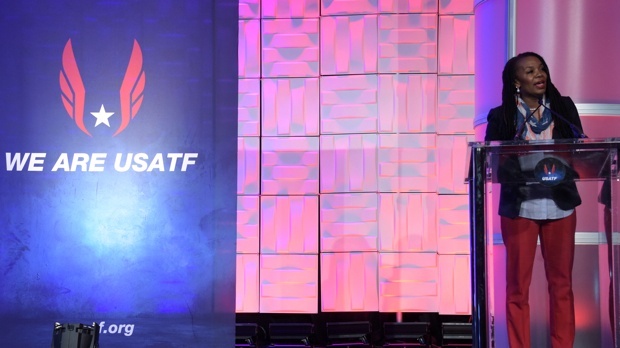
Very few organizations in our everyday lives are “pure democracies,” where decisions are made by a straight popular vote. At USATF, we vote for our officers and leaders via democratic means, but it is through a delegate system. - A Message from the USATF Board of Directors, 12/9/14
The delegate system at the 2014 USATF Annual Meeting ignored the voices of the people who represent the United States in the sport of track and field.
During the week of Dec. 2-5, the Annual Meeting was held in Anaheim, Calif., uniting hundreds of representatives from around the country to collaborate on issues surrounding the sport of track and field in the U.S and in international competition.
During the general closing session on Friday, Dec. 5, the USATF membership voted 390-72 in favor of Bob Hersh to stand as the candidate for IAAF council. Shortly after, the USATF Board of Directors overturned the recommendation 11-1 in favor of USATF President and Chair Stephanie Hightower.
Hightower has never served on an international council. Her nomination carries no guarantee of selection to the IAAF Council and may well have cost the United States their guaranteed spot in Hersh, who not only has served on the IAAF council for 16 years but also holds the position of Senior Vice President. He is the No. 2 elected official at the IAAF.
Hersh is so well respected in international track circles that he received more votes in the last IAAF election than Olympic champions Sebastian Coe and Sergey Bubka, who will vie to replace the retiring Diack as IAAF president in 2015.
The maelstrom of negativity that has ensued since the Annual Meeting has completely overshadowed positive financial news -- in his state of the federation address to open the convention USATF CEO Max Siegel announced a slew of new corporate sponsors, more money for officials and elite athletes, and unprecedented financial security -- with accusations of backroom politics.
“The fact that she [Hightower] is a person that can’t look at that vote, lose honorably and think, ‘You know what, I do think I’m the best person for this job but I got to respect the athletes here, I got to lose gracefully, right?’ but instead she’s the opposite. She’s like, ‘I will get this no matter what.” said Lauren Fleshman, who attended the Athletes Association Committee (AAC) meetings in Anaheim.
“If that’s the person that is going to be the face of the United States in international meetings, that’s terrifying to me.”
Hightower was elected president of USATF in Dec. 2008 and selected by the Board of Directors as its chairman. A former elite hurdler, she served on USATF’s Athletes Advisory Committee and as the USATF women’s track and field chair.
The IAAF is headed by a council of 27 elected members, including one president, four vice presidents, one treasurer, one representative from the area groups (six), and 15 individual members.
Member federations such as USATF nominate candidates to run for the council, and delegates from each of the IAAF’s 212 member federations elect council members to four-year terms at the IAAF congress in the year preceding the summer Olympics. Each federation has one vote, which for the United States is now Hightower.
The decision to vote Hightower, 56, into a seat on the IAAF council will take place in Beijing next August. Until then, the 75-year-old Hersh will continue to hold his position as Senior Vice President.
The Vote
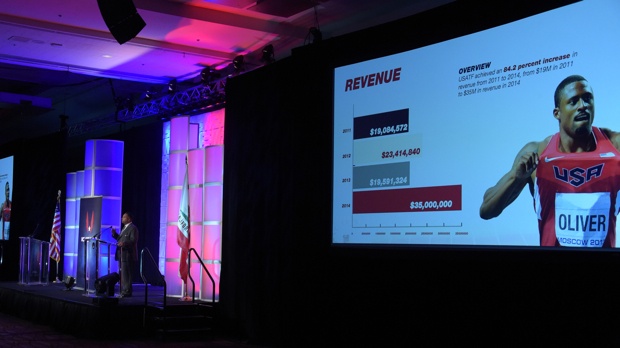
The USATF membership used to directly elect its nominee to the IAAF council. But during a round of restructuring at the 2008 annual meeting, the membership turned over that responsibility to the Board. Hersh has won election to the IAAF council as USATF’s nominee for four consecutive four-year terms.
David Greifinger, an attorney and the USATF Athlete Advocate, heard whisperings of Hightower attempting to replace Hersh and secure the nomination for IAAF council since her first term in 2008. In response, he introduced legislation on Article 17 of the USA Track & Field Bylaw Amendments, to enable USATF’s member delegates to vote on a candidate for the IAAF council nomination along with the Board of Directors’ vote.
Greigfinger wrote the following on trackandfieldnews.com:
“The Law & Legislation Committee of USATF met three times at the annual meeting to consider my legislation during very spirited sessions. Hightower attended every session, and did everything she could, either herself or through her surrogates, to derail the proposal. Ultimately, the committee recommended a compromise version under which the delegates at the meeting would vote on a recommendation to the Board for USATF’s candidate. The Board could only overturn the recommendation by a two-thirds vote of its total membership. This passed without opposition at the closing session.”
As mentioned earlier, the USATF membership vote resulted in nearly unanimous favor of Hersh, 85 percent to 15 percent, but the Board met immediately afterwards and overturned the vote of its constituents 11-1 to place Hightower in nomination.
Apparently, wielding her influence on the Board may be the least of Hightower’s indiscretions as a leader. A report in the Orange County Register has raised further questions about her ethics, including:
-An investigation by the Ohio inspector general in 1992 which revealed that Hightower spent 160 hours on the Ohio taxpayers’ dime making 2,695 local and long distance calls while working in the communications office of the Department of Mental Health.
-With Hightower in a leadership position, the Columbus Urban League lost a $7.5 million federal Head Start grant, which accounted for 72 percent of the organization’s budget.
-During a six-year stint on the Columbus (Ohio) Board of Education, Hightower angled to silence public comments at Board meetings and during her tenure more than 6,000 students fled the public school system for private or charter schools.
-Hightower's child gained entry into a highly-sought-after school despite the fact that she never filed the proper paperwork for that enrollment.
-Last year, she made erroneous and insensitive remarks on an Ohio radio station, claiming "when you look at the Columbus City Schools, there is over 95 percent of those children who have fathers or mothers that have been incarcerated at one point in time.”
“He’s [Hersh] the No. 2 most important person at the IAAF, at least in terms of that portion of it, so it is absolutely the most insane thing in the world that our board of directors is like, ‘Eh, we’re gonna put someone else out there,’” said USATF activist Becca Gillespy Peter, who attended the Board of Directors meeting after the USATF membership vote in favor of Hersh.
“Bob is the most upstanding person ever, and what kills me is that he’s not an ass-kisser like Stephanie is and he doesn’t play these political games, I mean obviously he knows politics, but a lot of this stuff with USATF is just beneath him. It’s not his style to go on the offensive against something like this.”
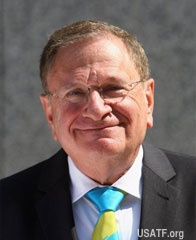
Hersh has been a powerful and influential presence in international track and field for over 30 years, serving in various capacities since USATF’s formation in 1980, including the General Counsel of USATF (1989-1997). He was elected in 2007 as one of four vice presidents of the IAAF and was also appointed as Chairman of the IAAF Competition Commission. In 2011, he was elected as Senior Vice President, the No. 2 position in the IAAF. He has served on the IAAF council as the United States representative since 1999.
The AAC, the committee in which athletes have a voice from within USATF, nominates three individuals to represent the voice of the athlete community on the Board of Directors. Of those representatives -- 2008 Olympic heptathlete Hyleas Fountain, retired Olympic sprinter Darvis “Doc” Patton, and race walker Curt Clausen -- Clausen was the only Board member who respected the overwhelming majority voice of the membership and voted for Hersh.
Neither Clausen nor Fountain could not be reached for comment.
When reached for comment on his vote, Patton referred Flotrack back to a statement USATF released in response to the furor ensuing from the Board’s vote. He added, “On another note, there's so much good happening in track and field right now it is ridiculous. As an athlete one year removed from the track, I've honestly contemplated coming out of retirement just to take advantage of all the new opportunities.”
In between the USATF membership vote and the Board of Directors meeting, Dwight Phillips, a four-time world champion and 2004 Olympic gold medalist in the long jump, was elected as the new AAC chair election with the hope that he would represent the voice of the athlete community.
Phillips was voted into the position late on Thursday night — the night before the closing session and the Board vote. The AAC did not meet again after voting in Phillips and before the closing session. But during the Board of Directors meeting, Phillips took it upon himself to voice his interpretation of the athletes’ desires for the IAAF council nomination. While introducing himself as the new AAC chair, Phillips claimed that the athletes were in favor of Hightower despite the results of the 390-72 floor vote that favored Hersh.
“I guess some athletes approached him [Phillips] and said they wanted Stephanie instead of Bob so when Stephanie asked Dwight to introduce himself at the Board of Directors meeting, Dwight introduced himself and he said that the athletes want Stephanie,” Gillespy Peter said.
“He was out of line to say that. Nobody asked him about that, it wasn’t like someone asked him what the athletes thought. He just threw that out there, but he said it and everybody heard it. You can’t take it back once it’s said, and it’s a big deal because that is NOT what the athletes wanted.”
Phillips could not be reached for comment.
The Ignored Athlete Voice
The fallout from the Board of Directors vote to overturn the USATF membership recommendation prompted Board Vice Chair Steve Miller to issue a statement.
“We take the vote of our membership very seriously and respect it,” Miller wrote. “With President Diack leaving the organization, there will be significant, structural change at the IAAF - with their leadership, with their direction, vision and politics. Stephanie is a new-era person. Bob has served the organization well at the IAAF. But this is a different era and a different time. We think she provides us with the best chance to move forward.”
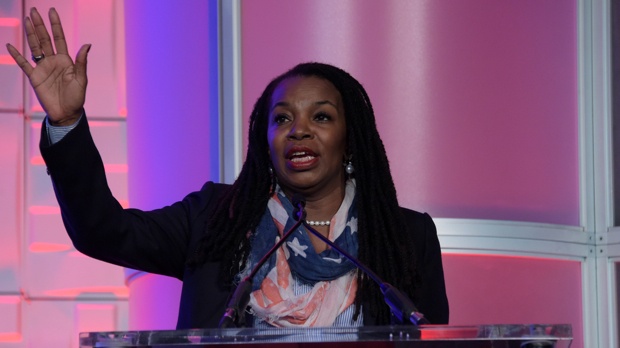
The statement has done little in the way of providing an acceptable rationale to AAC members, who remain outraged by a perceived betrayal.
“What kind of statement is that? A ‘new-era person’?! What does that even mean? As far as I can tell, Stephanie Hightower doesn’t have a Twitter account. Bob Hersh does. I mean, that’s one small example right there,” middle-distance runner David Torrence said.
According to Torrence, Hersh spoke to the AAC members, prior to the USATF membership vote, to update them on his position within the IAAF and the progress on issues he is working on as the United States representative within the council.
“When Bob Hersh came in to speak with the athletes to give them an update on what he does and what he’s doing and what’s going on with the IAAF and USATF, it became almost like an interrogation with a few highly influential athletes asking things like ‘Oh, what do you do? Name three things you’ve done to help the athletes,” Torrence recalled. “I kept thinking, ‘Whoa! Where’d this come from?’ It was almost like people were trying to find the fault in him.”
For many members of the AAC, Hersh has consistently been a responsive, reasonable presence when it comes to the needs of athletes in international and national competition.
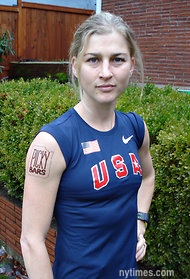
“I’ve only had one personal experience with Bob and it was very positive,” Fleshman wrote on asklaurenfleshman.com. “When I was forced to remove my Picky Bars tattoo before the NYC Marathon to avoid disqualification, I emailed him to ask him about IAAF rules, to vent my displeasure, and to see what could be done to change things. He emailed me back within an hour, we were on the phone later that day, and he went back and did further research and called me back to discuss what he had found. He strategized with me what I could do to optimize my rights. I am not an Olympic medalist, or even an Olympian, and he was right there with me.”
USATF and AAC members, like Fleshman, want answers as to why their voices were ignored.
“I want back the two hours of my morning spent sitting in a convention hall deliberating on a vote or rather watching the vote take place only for it to mean absolutely nothing,” Will Leer, the 800m-1500m AAC event group leader, said. “All of that costs money, which apparently our federation is struggling with. I mean, if this vote means nothing, then just come out and say it!”
“I don’t really even know her [Hightower] but I can tell you that the floor does not like her. She is received… coldly… You know, they announce her coming to speak and it’s like crickets.”
Representation by the Numbers
In order to have a voice within the USATF governing body, the AAC elects a chair, vice chair, secretary, treasurer, USOC representative, three USATF board positions, and event leaders for every event from the sprints to race walking. But a couple weeks ago in Anaheim, many representatives from numerous event groups were not present and therefore unable to wield influence in the voting process.
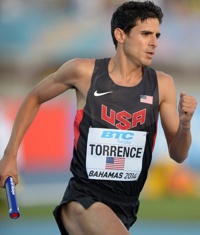 “People don’t realize how much power the athletes actually have. If 10 people from each event group showed up, we could make real, effective change, whatever problems you have,” said Torrence who recalled seeing just 36 athlete votes when potentially, the athletes could have over 100 capable of representing.
“People don’t realize how much power the athletes actually have. If 10 people from each event group showed up, we could make real, effective change, whatever problems you have,” said Torrence who recalled seeing just 36 athlete votes when potentially, the athletes could have over 100 capable of representing.
Although many athletes were not present during the meetings in Anaheim, USATF presents little opportunity for individuals to attend. As Gillespy Peter pointed out in her cost breakdown, in order to attend the meeting she had to spend a total of $1,141 of her own money for flight, hotel, and transportation costs and a registration fee to attend.
In order for athletes to vote, they must be considered an “international athlete,” which is someone who has competed for Team USA at a World Championships or at the Olympics in the last 10 years, or finished in the top half of the field at the U.S. Championships in the past two years.
Athletes are able to apply for funding to be present at the meeting, but if they do not meet the above criteria, they must pay $250 to attend along with hotel, transportation and other travel costs. As Fleshman pointed out in her recap, the Oiselle team applied but none of them qualified for funding.
“Equal representation of athletes across all event groups is very poor and that’s because funding to the Annual Meeting is granted via the tier system, and the tier system heavily favors sprinters,” Torrence said. “You can be the sixth best person in the country, but because of relay opportunities, you have another chance to win a medal and now you’re tier one. Whereas in other event groups, we have people who are fourth and fifth, breaking records and putting on a show but who are not on any tier, so that’s a major issue that we’re trying to tackle in the next couple months.”
Torrence did not qualify for funding to attend the Annual Meeting, but lives in Malibu, Calif. and was able to drive his own car, spend money on gas, pay the registration fee, and stay with Leer in order to be present throughout the week.
A lack of education on the intricacies and processes of the Annual Meeting also presents a challenge for many who attend.
“It’s a labyrinth of committees and sub-committees and representatives and all these things and so that’s what we’re lacking. People don’t know the process, people don’t know who is who and what is what,” said Torrence who, along with Leer, plans on producing a YouTube video with the sole purpose of efficiently explaining the organization with the goal of educating athletes and anyone interested in learning the system.
In order to have a voice within the organization and be informed, Leer made the decision to serve as an event leader within the AAC three years ago, a decision that has presented many challenges as well as victories along the way. For example, Leer lobbied for certain changes in the way USATF meets are run. He lobbied for fewer athletes in the heats of U.S. Championships, citing the 15 men on the starting line of the 1500m final at the 2014 USA Indoor Track & Field Championships as unsafe and inefficient.
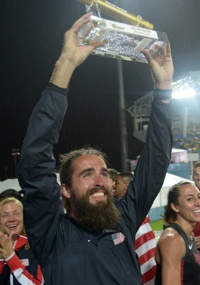 “It was nice to go into a meeting and have their attention and take it into consideration,” Leer said. “There’s a lot of areas in which being an athlete at the Annual Meeting is very important, change can happen be it large or small, but change happens every year.”
“It was nice to go into a meeting and have their attention and take it into consideration,” Leer said. “There’s a lot of areas in which being an athlete at the Annual Meeting is very important, change can happen be it large or small, but change happens every year.”
Change is Possible
Since the events of the Annual Meeting, many athletes and representatives have voiced their opinions, hoping to generate awareness of the issues at hand. The clear divide between the opinions of the USATF membership and the USATF Board of Directors presents a tremendous challenge, but one that gives opportunity to those that demand their voice be heard.
“If everyone asks, we need to know why, otherwise we’re gonna come back at you with all of our might and try and unseat every member of the Board, I think that that sort of voice will be heard,” Leer said. “But so far all that’s been said is Twitter bickering and a couple of blog posts.”
Related Content
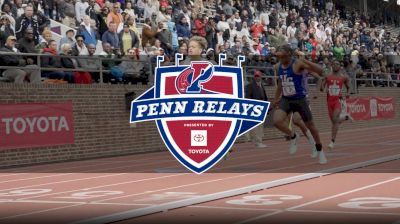 Penn Relays 2024 Preview Hype
Penn Relays 2024 Preview HypeApr 23, 2024
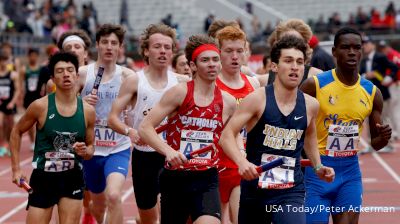 Qualifying Standards For Penn Relays 2024: Here's What To Know
Qualifying Standards For Penn Relays 2024: Here's What To KnowApr 23, 2024
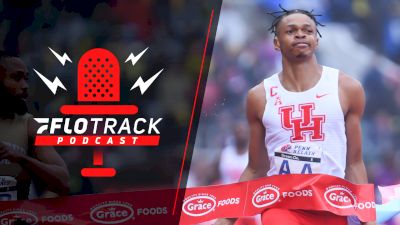 Diamond League Xiamen Reactions, Plus Previewing Penn Relays | The FloTrack Podcast (Ep. 663)
Diamond League Xiamen Reactions, Plus Previewing Penn Relays | The FloTrack Podcast (Ep. 663)Apr 23, 2024
 Here's Why You Don't Want To Miss The Bryan Clay Invitational
Here's Why You Don't Want To Miss The Bryan Clay InvitationalApr 22, 2024
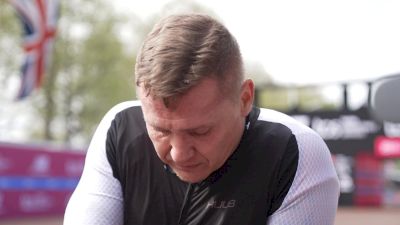 David Weir Takes Third At 2024 London Marathon
David Weir Takes Third At 2024 London MarathonApr 21, 2024
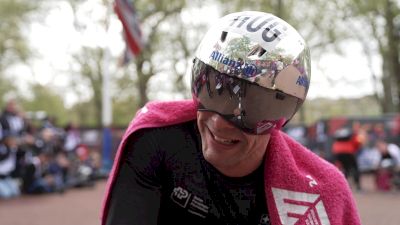 Marcel Hug Wins London Marathon A Week After Winning Boston Marathon
Marcel Hug Wins London Marathon A Week After Winning Boston MarathonApr 21, 2024
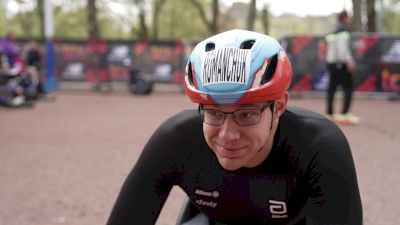 Daniel Romanchuk Second In Men's Wheelchair Race In London
Daniel Romanchuk Second In Men's Wheelchair Race In LondonApr 21, 2024
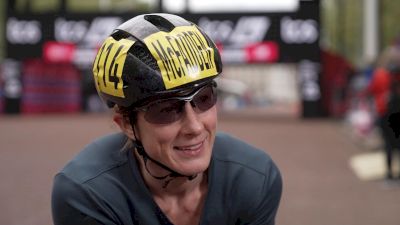 Tatyana McFadden Returns To London Marathon Elite Women's Wheelchair Podium
Tatyana McFadden Returns To London Marathon Elite Women's Wheelchair PodiumApr 21, 2024
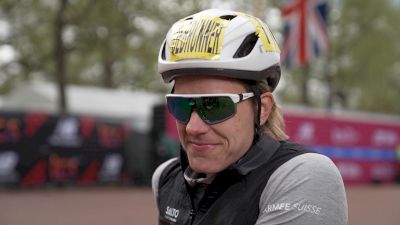 Catherine Debrunner Dominates Elite Women's Wheelchair Field In London
Catherine Debrunner Dominates Elite Women's Wheelchair Field In LondonApr 21, 2024